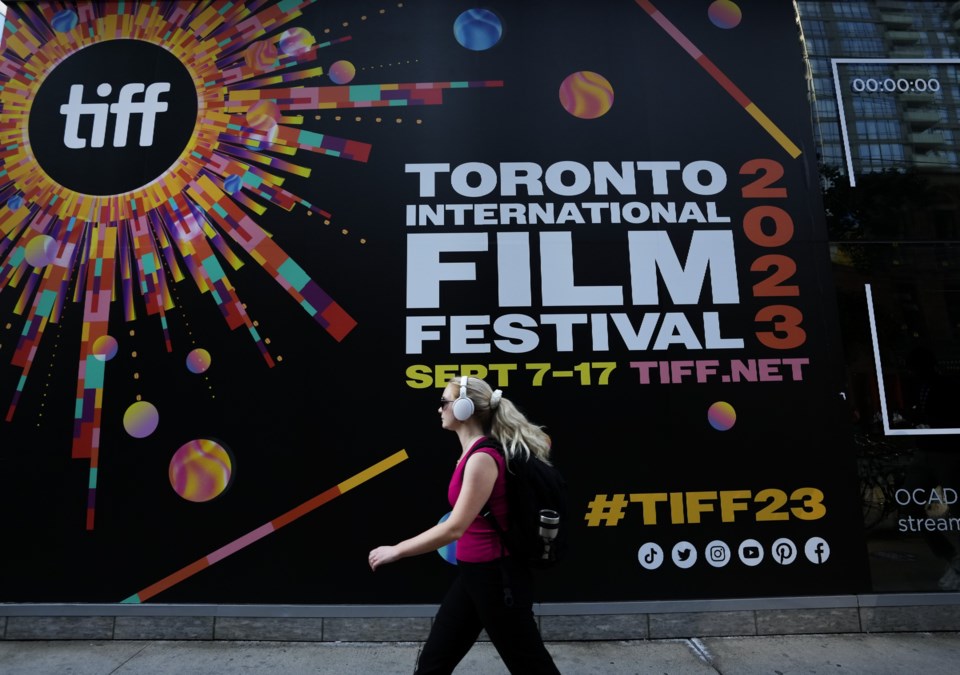TORONTO ŌĆö A group of Canadian filmmakers have joined forces with Hollywood A-listers in asking the Toronto International Film Festival to end sponsorship ties with the Royal Bank of sa╣·╝╩┤½├Į because of the financial institution's funding of the oil and gas industry.
Organizers of the campaign, called RBC Off Screen, say the bank's track record of investing in fossil fuels runs contrary to the socially progressive values the film festival purports to stand for.
Signatories to the group's open letter to TIFF outlining its concerns include screen stars Mark Ruffalo, Rachel McAdams and Joaquin Phoenix, alongside filmmakers and producers including Avi Lewis, Elza Kephart and Jose Luis Gutierrez.
Kephart and Gutierrez started the campaign, which they say is supported by more than 200 entertainment industry workers. The group's statement says RBC is one of the largest financiers of oil and gas projects in the world and supports projects that have negatively impacted Indigenous lands and BIPOC groups.
TIFF's vice-president of public relations Judy Lung said in a statement the festival values the sustainability concerns being brought forward, and that they are talking to RBC about them.
RBC spokesperson Stephanie Bannan said in a statement that more action is needed on climate change and the company welcomes the chance to discuss the issues with Indigenous groups and the film community.
ŌĆ£When it comes to climate change, we strongly believe that more action and at a faster pace is needed to address it. We are actively engaging with our clients and partners to identify opportunities to do more in delivering on shared objectives,ŌĆØ Bannan said.┬Ā
ŌĆ£We are also working to engage with Indigenous communities in collectively advancing reconciliation. We appreciate the concern for our climate expressed by members of the film community and would welcome the chance for dialogue.ŌĆØ
Louis Ramirez, climate activist and spokesperson for the campaign, says that TIFF's association with RBC doesn't match its pursuits to fund, aid and promote BIPOC creatives throughout the years.┬Ā
It's great if organizations are giving grants to Black filmmakers, Ramirez said, but if that money is linked with starting gas plants in Black communities, for example, "then thereŌĆÖs a problem."
"A lot of these film organizations like TIFF have excellent climate programs. But these climate programs really stop at questioning the slightly larger picture ŌĆö where does the money come from? There's this myopia right at that minute when it comes to corporate associations."
Nadia Louis-Desmarchais, co-director of "Black Life: Untold Stories,ŌĆØ said that in the interest of social change, it was important for her to sign the letter.
ŌĆ£When I learned that it was something that needed to be done right now ŌĆö as a filmmaker, if I can just have a little part in it, of course, I'm going to help,ŌĆØ Louis-Desmarchais said Tuesday at the red-carpet premi├©re of the documentary series, which will air on CBC in October.┬Ā
ŌĆ£I think it's important that we stick together right now.ŌĆØ
RBC, Bulgari and Visa are among TIFF's major sponsors.┬Ā
Last month, it was announced that leading sponsor Bell will end its decades-long partnership with the festival at the end of the year.
CEO Cameron Bailey said in a previous interview with The Canadian Press the organization is looking for a replacement to eventually put its name on TIFF's downtown headquarters, currently known as the TIFF Bell Lightbox.
Last year, sponsors contributed about $13.4 million to TIFF, which amounted to 28 per cent of its total revenues.
-With files from William Eltherington
This report by The Canadian Press was first published Sept. 12, 2023.
Noel Ransome, The Canadian Press



